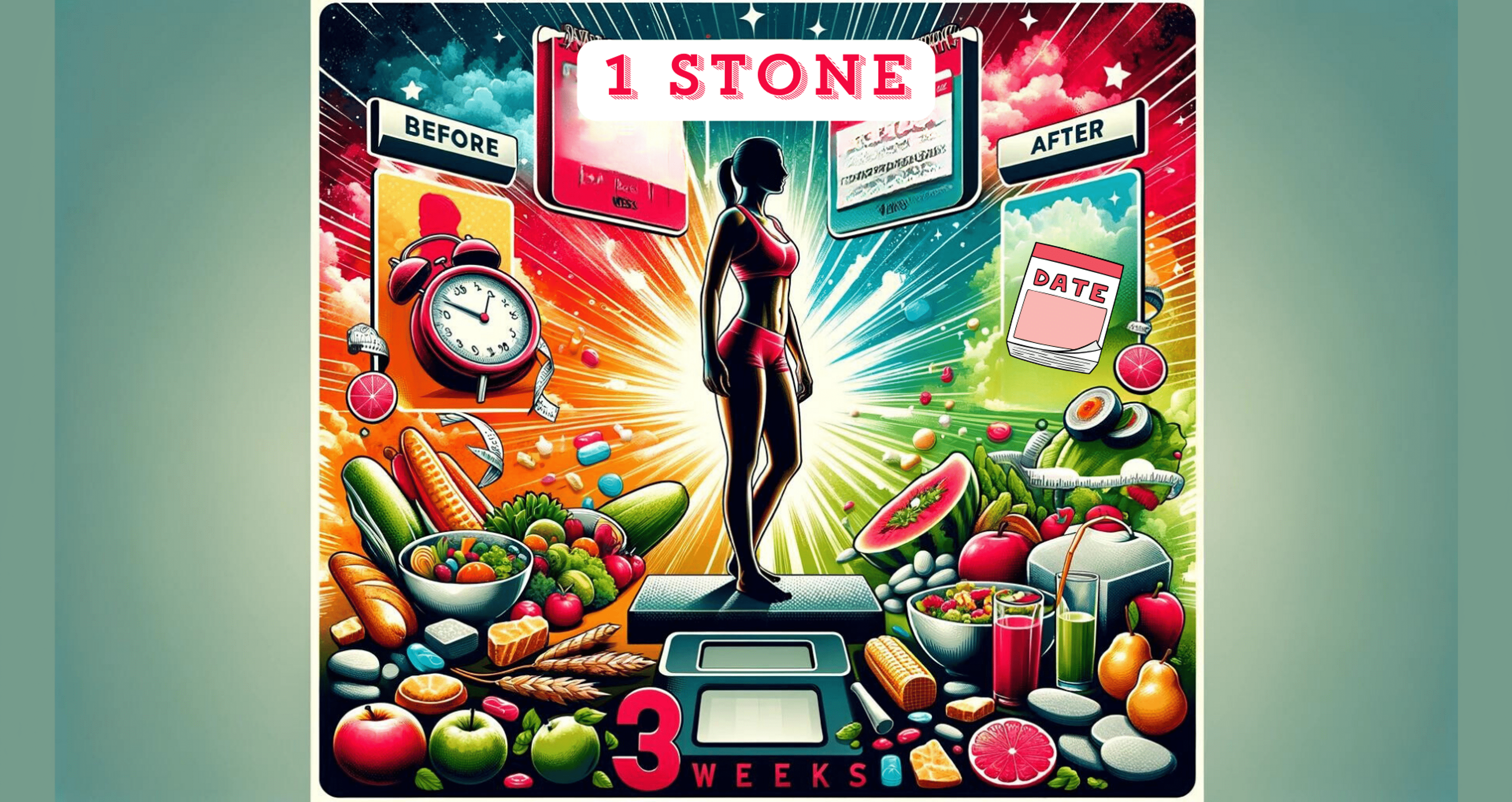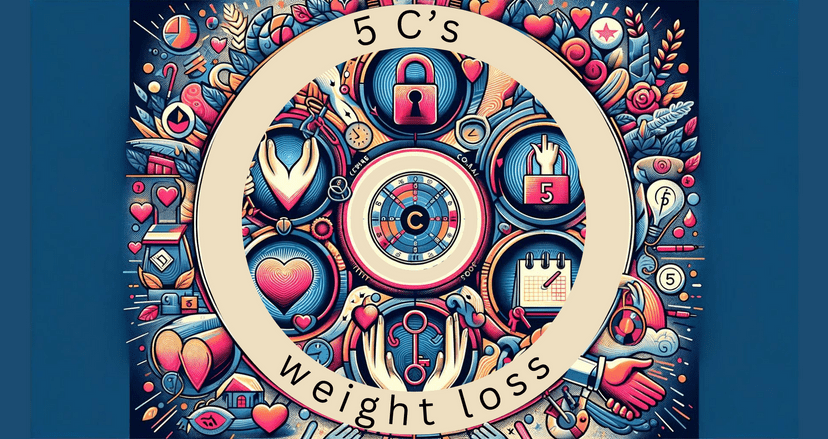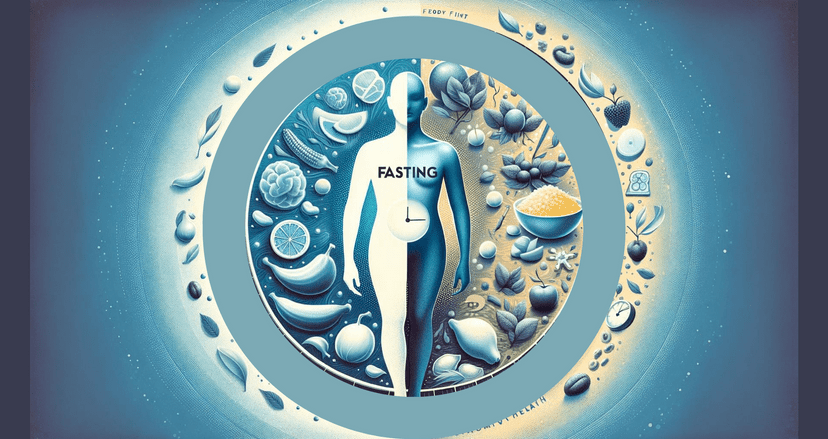How to Lose a Stone in 3 Weeks: Is It Possible?

The Challenge of Rapid Weight Loss
When it comes to weight loss, one of the most common goals is to lose a stone, or about 14 pounds, in as short a time as possible. Setting a target period of just 3 weeks for such a significant weight loss highlights the concept of rapid weight loss. But is it possible? And, if so, is it healthy?
Rapid weight loss often sounds very appealing. After all, who wouldn't want to see dramatic results in a short amount of time? However, the truth behind such quick shifts in weight can have some serious implications for your health.
Understanding Rapid Weight Loss
Typically, losing 1 to 2 pounds per week is considered a safe and achievable goal for sustainable weight loss. This rate also ensures that the weight you're losing comes from fat, rather than water or lean muscle.
To lose a stone in 3 weeks would mean losing approximately 4.7 pounds per week - over twice the recommended rate. This can't typically be achieved through healthy, calorie-restricted diet and moderate exercise that professionals recommend for long-term weight loss. Instead, such rapid loss often requires drastic (and potentially dangerous) calorie restriction or intense exercise regimens.
Health Risks Associated with Quick Weight Loss
Attempting to lose weight too quickly comes with numerous health risks. These include:
- Nutrient deficiencies: Drastic calorie restriction means you're likely not getting the necessary vitamins and minerals your body needs to function properly.
- Loss of muscle mass: When you lose weight too quickly, you're more likely to lose lean muscle rather than fat.
- Gallstones: Rapid weight loss can lead to the formation of gallstones - hard pieces of material that can form in your gallbladder.
- Metabolic slow-down: When you lose weight very quickly, your metabolism can slow down, which means you burn fewer calories at rest. This can make it much harder to maintain your weight loss or lose weight in the future.
Realistic Expectations for Short-Term Weight Loss
While the prospect of losing a stone in 3 weeks might be attractive, it's crucial to set realistic and healthy expectations for weight loss.
Typically, a more sustainable goal might be losing a stone in about 14 weeks, which would involve losing 1 pound per week. It may not sound as impressive as dropping the weight in a matter of weeks, but it has numerous advantages. This rate of weight loss is more likely to be maintained in the long run, it won't slow down your metabolism significantly, and it's achievable through moderate dietary changes and exercise habits that can be maintained for life.
Remember, achieving a healthy and sustainable weight loss is a marathon, not a sprint. The key is consistency and making lifestyle changes that are sustainable in the long run rather than aiming for short-term, potentially damaging, weight-loss goals.
Strategies for Accelerated Weight Loss
Losing a substantial amount of weight, such as a stone (approximately 6.4 kilograms), in a short time frame like 3 weeks is a task that requires a focused and committed approach. However, it's crucial to stress that any rapid weight loss regimen must prioritize health and sustainability above all else.
Pursuing severe calorie restriction or engaging in extreme workout regimes might pose significant health challenges and often result in unsustainable weight loss patterns that bounce back quickly. The point here is not to adopt harmful patterns but rather to incorporate and intensify sound nutritional, exercise, and lifestyle choices. Let's delve into the strategies that might lead to accelerated and significant, but healthy, weight loss.
Nutritional Approaches for Quick Results
When it comes to losing weight, diet plays a crucial role which is why we are emphasizing healthy nutritional approaches for quick results. Firstly, aim to reduce your calorie intake by making conscious food choices:
- Prioritize high-quality proteins, including lean meats, eggs, and legumes. Proteins are not only crucial for bodily functions but also help you feel fuller for longer, thus reducing your overall calorie intake.
- Increase intake of fruits and vegetables. High in fiber, low in calories, and packed full of vitamins and minerals, fruits and vegetables are a dieter's best friend.
- Rein in on processed foods and beverages, which are typically high in sugars, unhealthy fats, sodium, and calories.
To feature an actual number, a bodyweight reduction of up to a stone in 3 weeks might require a daily dietary restriction of around 1000-1500 calories, but remember, this should only be approached under the supervision of a healthcare or nutrition professional.
Exercise Plans for Maximizing Weight Loss
Exercise is the love story that will support your nutritional approaches by increasing the calorie deficit from the other end: by boosting the calories you burn every day. Remember, the best exercise regime is one that you love and can stick to. Here are some pointers:
- Engage in moderate-intensity cardio exercises daily. Brisk walking, swimming or riding a bicycle can help you burn more calories.
- Add strength training to your routine. This can build muscle, which burns more calories at rest than fat does.
- Try high-intensity interval training (HIIT), which involves short bursts of high-intensity exercise followed by periods of rest or lower-intensity exercise. These workouts can burn a lot of calories in a short amount of time.
Incorporating Lifestyle Changes
Finally, don't forget that the journey of weight loss is not just about diet and exercise, but also healthy lifestyle changes. Thoughtful changes to your daily habits can enhance the results you see:
- Improving sleep: A good night’s sleep is crucial for general health and weight management.
- Minding stress levels: High stress levels can lead to overeating or unhealthy food choices.
- Practicing mindfulness and eating slowly: Paying attention to your body signals and savoring food can enhance feelings of fullness and satisfaction.
In conclusion, the journey towards losing a stone in 3 weeks necessitates intense, but more importantly, healthy and sustainable commitments towards your diet, exercise, and lifestyle. Remember, the centerpiece of your efforts should always be maintaining or improving your health, not rushing towards a potentially fleeting goal. Always consult with a healthcare professional before beginning any intense weight loss regimen. Aggressive goals require careful guidance and supervision.
Sustainable Weight Loss: Beyond 3 Weeks
Getting ready to shed a stone in just three weeks? It's time we shift focus from these short-term goals to a more enduring health strategy: sustainable weight loss. The rapid shedding of pounds might be tempting. However, numerous scientific studies show the benefits of gradual, healthy weight loss. It may require patience, and the rewards might not be immediate, but the long-term benefits are plentiful and significantly outweigh the initial thrill of rapid weight loss.
Setting Up for Long-Term Success
The journey to long-term weight loss success starts by prioritizing your overall health. This might require making small but significant lifestyle changes. Here's where you start:
-
Balanced diet: An important factor in sustainable weight loss is a balanced and nutritious diet. Aim for a diet rich in fruits, vegetables, whole grains, lean proteins, and healthy fats.
-
Regular physical activity: Exercise doesn't just burn calories. It also builds muscle, increases your metabolic rate, boosts your mood, and helps with overall health.
-
Adequate sleep: Sleep is as crucial as diet and exercise when it comes to weight loss. Inadequate sleep can hinder your weight loss efforts by altering your hunger hormones and increasing cravings.
The Importance of Sustainable Habits
Developing sustainable habits is integral to achieving long-term weight loss success. Start by setting realistic goals for your weight loss plan. For instance, a healthy weight loss recommendation from experts is losing 1 to 2 pounds per week. While the progress might seem prohibitive, it's sustainable.
Next, incorporate consistent daily practices. Even the smallest practices contribute to gradual changes over time. This could mean taking the stairs instead of the elevator, biking instead of driving, or replacing a sugary snack with a piece of fruit.
Remember, it's also crucial to remain patient and persistent throughout your weight loss journey.
Adjusting Goals for Health and Well-being
While losing weight may be your primary focus, it's essential to remember that the ultimate goal is improving your health and well-being. And tangible metrics like weight aren't the only measures of success. It's also important to track improvements in energy levels, mood, sleep quality, and even self-confidence.
As you adjust your habits and start to feel better physically and emotionally, your weight loss journey becomes more of a health journey. This adjustment in perspective can help sustain your efforts over time and encourage patience throughout the journey.
And there you have it. This shift in focus from rapid weight loss to gradual, sustainable health improvement offers a more sustainable, health-focused approach.
In Summary
This blog post has examined the concept of rapid weight loss, specifically the goal of losing a stone (approximately 14 pounds) in just three weeks. We've seen that while it may seem attractive, rapid weight loss can pose a number of health risks, including nutrient deficiencies, loss of muscle mass, formation of gallstones and metabolic slow-down.
Instead, the post has advised focusing on achievable, sustainable weight loss through healthy nutritional approaches, moderate-intensity exercise and positive lifestyle changes. It has been suggested that a more realistic goal might be losing a stone in 14 weeks - which means losing 1 pound a week, a pace that is more sustainable and likely to be maintained in the long run.
Based on this important information, here's a suggested plan of action:
Set realistic weight loss goals. Aim for a steady, manageable weight loss rate of 1 to 2 pounds per week. A healthcare or nutrition professional can provide guidance on this.
Develop a healthy eating plan. Prioritize high-quality proteins, fruits and vegetables, and reduce your intake of processed foods and beverages.
Establish a consistent exercise routine. Incorporate moderate-intensity cardio exercises and strength training into your daily routine and consider adding high-intensity interval training (HIIT) for increased calorie burn.
Embrace healthy lifestyle changes. Improve sleep patterns, manage stress levels and practice mindful eating.
As for the action steps to take to implement this plan:
-
Speak to a Healthcare Professional: Before making substantial changes to your diet or physical activity levels, it's crucial that you consult with a healthcare provider. They can help you establish realistic and healthy weight loss goals and provide you with personalised advice.
-
Evaluate and Modify Your Dietary Habits: Review what you eat on a typical day and look for ways to incorporate more healthy proteins, fruits, and vegetables into your diet. At the same time, try to minimize your intake of processed foods, drinks high in sugar, and foods with unhealthy fats.
-
Create an Exercise Plan: Develop a physical activity routine that includes moderate cardio, strength training, and potentially HIIT. Find activities that you enjoy so you will be more likely to stick to your routine.
-
Implement Healthy Lifestyle Changes: Look at how you can improve your overall lifestyle. This might mean ensuring you get a sufficient amount of sleep each night, exploring stress management techniques such as yoga or meditation, or adopting an eating habit that promotes mindfulness.
Following these steps can help you make the shift from aiming for rapid weight loss to focusing on gradual, sustainable health improvement and achieving your long-term weight loss goals.













